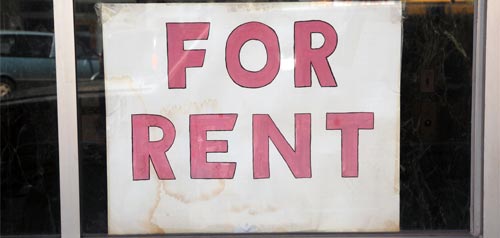I‘m pretty sure I'm not cut out to be a landlord. However, I have watched friends and relatives do the landlord thing. I know that, if you are the right sort of person to be a landlord, it can be profitable. You could easily fund your retirement with the income from your tenants.
On the other hand, though, if you aren't careful, you could end up in a nightmare. The wrong tenants might ruin the house, or be late paying. You could end spending far more than you are bringing in, just to make repairs and try to collect rent (or end up losing your money altogether). After watching the saga play out with my in-laws, and after what happened across the street from me, here is what I would do if I were choosing tenants:

NEVER Rent To Friends Or Relatives
As with so many things in life, trying to make something business-related work with friends or family can backfire on you. Friends and relatives might assume that you will give them a break — even if you do sign a lease (and you should always sign a lease), and do everything by the business book. In the end, friends and family expect your personal relationship to come first, and the business relationship to come second. If you try and stick to the business relationship on rent-related matters, your personal relationship can easily become strained.
Credit Check
Before agreeing to let someone move in, you should run a credit check. Find out what sort of credit the tenant has. Check references. Don't be afraid to ask for the name and phone number of a prospective tenant's boss. Even if you don't run a credit check, you can ask for proof of income, and proof of employment. Pay stubs or bank statements (tell the tenant to black out the account number) can serve to help you verify income.
As part of this process, ask for a previous landlord's information. Our friends rented out their house, across the street from us, and even though the tenants were evicted from their last home, they still allowed them to move in. Needless to say, after more than a year of frustration, our friends finally evicted these tenants — and performed extensive repairs on the house. Talk to the previous landlord, and find out what kind of tenants they were.
Get Money Up Front
You don't want to start your landlord-tenant relationship out with your renters owing you money. Find out if they can give you the first month's rent plus security deposit up front. For the most part, responsible tenants are also responsible with their money, and build this type of payment into their plans. Establish,
When all else fails, trust your gut. If you have a bad feeling about a potential tenant, don't go through with the transaction. Look for someone else. Interview potential clients so that you know what to expect, and look them in the eye. While you can be fooled by some people, your gut can be very valuable as you decide which tenants to accept. Remember: As long as you follow the law, you can be picky about the people who live in your rental.
What are your tips for choosing tenants?